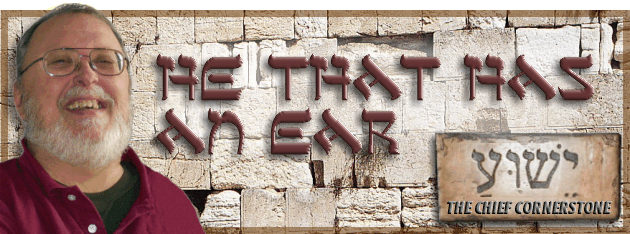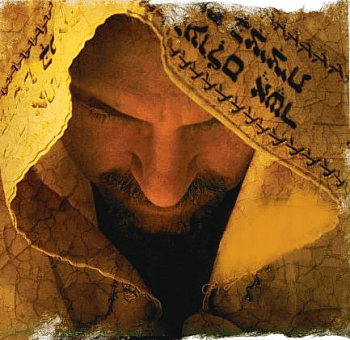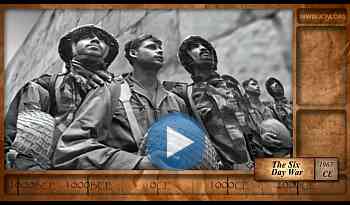Can we do תפילות prayers for:
haRold Smith and his ministery?
That through them The האור Light, רפואה The Healing and The ואהבה Love of ישועת יהוה Yeshuath YHWH may come back to הארץ The Land of Israel?Difficulty Reading? Click Here http://hethathasanear.com then on the article to change to larger type.  | ||||||||||
"…let him hear what the Spirit says to the churches. To him who overcomes I will give to eat from the tree of Life, which is in the midst of the Garden of YHVH." Revelation 2:7 | ||||||||||
"the Law"? Part Three: the Beatitudes by haRold Smith a citizen of the Commonwealth (Eph.2:12) "Blessed is he whose transgression is forgiven, whose sin is covered." "Blessed is the man to whom the LORD does not impute iniquity, and in whose spirit there is no deceit." "Blessed is he who considers the poor; the LORD will deliver him in time of trouble." "Blessed is that man who makes the LORD his trust, and does not respect the proud, nor such as turn aside to lies." "Blessed is the man who walks not in the counsel of the ungodly, nor stands in the path of sinners, nor sits in the seat of the scornful." "Blessed is the man whose delight is in the law of the LORD, and in His law he meditates day and night." "Blessed is the man whom You instruct, O LORD, and teach out of Your law." "Blessed is the man who fears the LORD, who walks in His Ways. When you eat the labor of your hands, you shall be happy, and it shall be well with you." "Wait a minute!! These are not the Beatitudes listed in my bible!! Where do these sayings come from?" Because of Christianity's insistence of divorcing itself from its Hebraic origins, most who read the passage of Matthew 5:1-20 (click on highlighted words to view scripture), commonly referred to as "the Beatitudes" or "the Sermon on the Mount", do not realize that approximately one-third of the OT was written in poetic form. The poetic form expressed in this passage was not invented by Yeshua or Matthew. All who heard the manner in which Yeshua delivered these words understood the significance surrounding His use of this poetry and also recognized that these poetic words were not "new". Every one of the different "blessed" verses spoken by Yeshua in Matthew 5 can be referenced to their origin in the Tenakh (Hebrew for the Original Testament). The verses at the opening of this article represent but a few of the dozens of instances of this poetic form found throughout the Tenakh. The original Hebrew meaning of "blessed", however, is strikingly different from the modern day application that has become attached to the word. The Hebrew word translated as "blessed" is Strong's H835,'esher, (click and then scroll down to see how many times this word is used) and is more appropriately conveyed as "O, the happiness of the man" …who does what follows. So, let us see what is to be found in the words of Yeshua known as "the Beatitudes" and if there is anything in those words that can be considered "new" thought. Typically (as depicted in the image above), many imagine Yeshua standing on the side of a mountain, addressing a throng of people in the valley below with the person farthest away clearly hearing everything He said - without a microphone! But, the first two verses of Matthew 5 give us an insight into what actually happened, "Seeing the crowds, He went up on the mountain, and when He sat down, His disciples came to him. And He opened His mouth and taught them." Who was He teaching - who are "them"? Considering that Matthew 13:34 says Yeshua ONLY spoke to the multitude in parables, it is clear He is not shouting across a valley but speaking to the twelve disciples who came to Him in close proximity after He had sat down. It is extremely important we do not read something into scripture that is not there. The listing of the verses from Matthew 5 that follows is merely to establish their original location in the Tenakh to show they are not "new" and is not meant as an expository on their meaning. "Blessed are the poor in spirit, For theirs is the kingdom of heaven" can also be found in Isaiah 66:2 and Psalm 34:18. The Hebrew perspective of humility is not about low self-esteem, but rather about low self-preoccupation. "Blessed are those who mourn, for they shall be comforted" can also be found in Isaiah 61:2-3and Psalm 21:6. The Hebrew word for "mourn" is 'aval, which comes out of a root that means to agonize, to languish, to lament. - as in Hosea 4:1-3, mourning over lack of Truth to be found (again having to do with low self-preoccupation). "Blessed are the meek, for they shall inherit the earth" is a direct quote from Psalm 37:11. Again, we find a Hebrew definition comprised in humility, not passivity. Numbers 12:3 tells us that Moses was considered the meekest man on the face ot the earth. "Blessed are those who hunger and thirst for righteousness, for they shall be satisfied" can also be found in Psalm 42:2 and Isaiah 32:17. "Blessed are the merciful, for they shall receive mercy" is in 2Samuel 22:26 and Psalm 18:25. "Blessed are the pure in heart, for they shall see YHVH" is in Psalm 24:4-5 and Isaiah 56:1 (seeCultivating Virtue for an expanded explanation). "Blessed are the peacemakers, for they shall be called sons of God" can also be found in Psalm 34:14 and Isaiah 54:13. Peacemaking was not only a NT concept. Just prior to Yeshua's ministry Rabbi Hillel had said, "Be of the disciples of Aaron, loving peace and pursuing peace" (Abot., 1:12).
"Blessed are you when others revile you and persecute you and utter all kinds of evil against you falsely on my account. Rejoice and be glad, for your reward is great in heaven, for so they persecuted the prophets who were before you" is a direct reference to the fate of all those recorded in the Tenakh who "pursued righteousness" in the Name of YHVH. Yeshua's admonitions in verses 13-16 are to DO those things just spoken of in the previous verses, thereby allowing His transition to His next statement so to leave no doubt regarding where He stood concerning the Words of YHVH in Torah (the law).
In the previous articles of this series, Torah and the Law and Legalism, we saw the effect the error of poor (or deliberate) translation has by changing the word "Torah" from its Hebrew meaning of "instruction" or "teaching" into the Greek wording of "the Law" which carries a distinctly different meaning of "rule" or "regulation" and that Torah is simply the means by which we learn of, become educated in the Nature of YaHoVeH, the Holy One of Israel. The "scripture" the Hebrew apostle Sha'ul (Paul) was referring to in 2Timothy 3:16 is Torah - the only scripture in existence at the time he wrote those words. What is called the "New" Testament, the gospels and the epistles, were only in the process of being written (if they existed at all) and were certainly centuries away from canonization at the time of his penning of this letter to Timothy. Yeshua went to great lengths to be sure His Words were clearly heard the way He meant them to be. The only way around His statement of not abolishing the Words of Torah is to either excuse them, redefine them or ignore them - which happens when looking at Hebrew concepts through the language filters of Greek to Latin to English and re-routing their definitions (see Who's Word Is It?). By the time we get to Matthew 5:17-20, equipped with the understanding that what Yeshua was saying in the verses leading up to this passage was not "new"; then His statement of not abolishing Torah becomes reinforcement, a validation of all that had come before. Yeshua is using a familiar poetic form recognizable to the Hebrew audience He was addressing as the vehicle to bring to the forefront of their understanding the most essential of those words expressing the Nature of YHVH found in the foundational words of Torah - the Books of "instruction in righteousness", the Prophets and the Psalms. The words contained in those books spoke of the fulfillment His appearance would bring to the Words of YHVH in their fullest, most proper application to be built upon - not done away with (Luke 24:44). So, what is the significance of this information? It is called bearing - the way in which we look at these scriptures affects, has import upon, how all other scripture is approached. For instance, the eighth chapter of Hebrews speaks of a "new" covenant. It is clear that the reference made to this covenant is what is spoken of in Jeremiah 31:31-34. To look solely at the definition of the Greek word used for "new" in this passage, Strong's G2537, kainos, would leave the impression that this covenant is made from scratch - "brand new", as it were. However, when we look at the Hebrew word for "new", Strong's H2319, chadash, (on which the Greek is referencing), we find its definition to mean "re-new, re-pair, to make fresh". When a house is repaired or remodeled, it is done so on an existing foundation - thus, it is "made fresh". This is the context of this Hebrew word that the Greek word is pointing to - even carrying part of the Hebrew definition, "fresh", into its own. Scripture is measured by other scripture - two or more witnesses. In Matthew 16:18, Yeshua says it is on the same rock of revelation Peter experienced in Spirit that He will "build" His church. The word translated "build" in this verse is the the Greek word, oikodomeo - Strong's G3618, which means "to restore by building, to rebuild, repair" - upholding the words of Jeremiah. (see the Law of Grace and One Covenant).
To begin with, Yeshua specifically stated above that He did NOT come to "abolish" the Torah - so, to believe and act otherwise is to say He is a liar. His entire credibility as the promised Messiah to His audience of pious Hebrews who religiously kept the Words of YHVH contained in Torah rested completely on how He handled Torah. Simply stated, they would not have accepted and followed Him as the Messiah to the house of Israel if He nullified Torah. If we simply follow the words that are written on the page apart from looking at them through the traditional filtered lenses of what men have said they mean, we find that Yeshua also said in that passage of Matthew 22 that while these two commandments are the greatest, it is on these two that ALL THE OTHER LAWS HANG - the Essence of the Nature of YHVH, selflessness, expressed in those two is found in all the rest, not that they are eliminated (see what it means to Abide In His Name). Secondly, the Greek word translated as "fulfill" in this verse is pleroo, which means "to fill up, make whole, complete, to fill to the brim". There is nothing in that definition that even hints of what came before as being of no consequence or obsolete. Just because you fill a glass of water "to the brim" and it is made whole and completed due to the fact that it will not hold anything else does not mean that you throw the container holding the water away. If you did, you would then have no way to be nourished by the contents it holds. Because of Christianity's deliberate separation from the originating Hebrew influence, what is not understood in these words Yeshua gives us (like the "law of love") are not "new" at all - but come directly from the Tenakh, the Torah, the Original Books. There is only one place in all of scripture where Yeshua says He gives a "new" commandment - John 13:34-35. Notice, however, who the audience was He was speaking to. He was not giving it to the world, not to the religious masses or to their leaders, but twelve men - the disciples who had abandoned everything to follow Him. To those twelve and only them, Yeshua said to love each otherIN THE SAME WAYonly HE HAD MANIFESTED THE LOVE OF THE FATHER TO THEM (see Just As - Even So). It would be in this manifestation of the Father to each other that the world would look upon them and know they were His disciples. How had He manifested the Love of the Father? Most would quote John 3:16 as the answer when the kind of "love" Yeshua exampled it is more appropriately found in 1John 3:16. Yeshua also says in John 17:6-8. it was in keeping the Words of the Father that He manifested His Name (what have come to be known as "the commandments" inExodus 20:1-17, see what it means To Be Made Manifest). In spite of Yeshua's direct contradiction about the Torah being "done away with" in Matthew 5:17 above and even though there is not one scripture that says any of the Ten Words of the Father have ever been eliminated (in spite of the mis-handling of the words of Paul), the assumption is made that these words spoken by Yeshua from the sermon on the mount are the "new commandments" that replace the "old" ones - again, not realizing that, like the "law of love", every one of those words Yeshua spoke on that mount are found in the Tenakh (the OT). There is only one place in scripture Yeshua pointed to that would nullify, render of "none effect" the Words of YHVH, Mark 7:13. Tradition comes from the Greek word paradosis, (it rhymes with "paralysis") and means "a giving up". To find Truth means we must seek after it with all of our might (Jeremiah 29:13). Paying someone to do it for us invalidates that process - we "give up" the responsibility to hear Spirit to someone else. It is much easier to eat the tenants of other men's convictions, pre-cooked and set before us on a plate of tradition than it is to take up a spade to go digging into the Garden so as to find Truth for ourselves. When we allow others to read for us and find our conclusions for us, we "give up" the empowerment of the sacrifice Yeshua made to give us the opportunity to feed ourselves. John 17:3). Words mean things. By eliminating, ignoring and redefining the standard of measurement YHVH gives us in His Words, we are left to our own devices to determine of what is the Essence of the Nature of this Hebrew Spirit, YHVH, and what is not. Those who insist on "feel good" theologies of the tradition of men remain in ignorance, in kindergarten, concerning the practical aspects of knowing the Eternal One of Israel (Hebrews 5:12-13). To continue the process of education, one must embrace ALL the Books of scripture to see how they ALL compliment one another - not just the most convenient to support a flawed, pre-determined theology (see Who's Name Is It? for explanation). Part One - Torah and the Law Part Two - Legalism Part Three - the Beatitudes
Please feel free to email them to me at harold@hethathasanear.com. While not claiming to have all the answers, it would be an honor to share with you what the Spirit is uncovering. | ||||||||||
"Pray for the peace of Jerusalem: They shall prosper that love you." (Psalm 122:6) (prosper - from the Hebrew, "shalav", meaning "to be at rest") Please visit the website http://hethathasanear.com for other articles and videos or for information if you feel led to contribute to this ministry. Click here to watch the short movie Maranatha!. | ||||||||||
Shalom Alechem B'Shem Yeshua HaMashiach. (Peace be unto you in the Name of Yeshua the Messiah) | ||||||||||
| haRold Smith Jerusalem • Israel http://hethathasanear.com harold@hethathasanear.com CLICK IMAGE TO VIEW VIDEO >>>> |  | Click Here to Subscribe | ||||||||







No comments:
Post a Comment